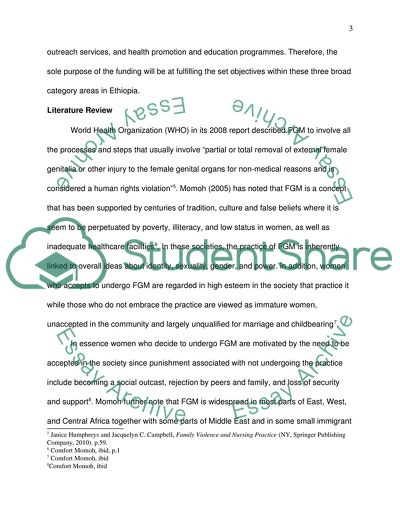Cite this document
(“FGM Practices in Ethiopia Research Paper Example | Topics and Well Written Essays - 1250 words”, n.d.)
FGM Practices in Ethiopia Research Paper Example | Topics and Well Written Essays - 1250 words. Retrieved from https://studentshare.org/politics/1747155-its-a-research-proposal
FGM Practices in Ethiopia Research Paper Example | Topics and Well Written Essays - 1250 words. Retrieved from https://studentshare.org/politics/1747155-its-a-research-proposal
(FGM Practices in Ethiopia Research Paper Example | Topics and Well Written Essays - 1250 Words)
FGM Practices in Ethiopia Research Paper Example | Topics and Well Written Essays - 1250 Words. https://studentshare.org/politics/1747155-its-a-research-proposal.
FGM Practices in Ethiopia Research Paper Example | Topics and Well Written Essays - 1250 Words. https://studentshare.org/politics/1747155-its-a-research-proposal.
“FGM Practices in Ethiopia Research Paper Example | Topics and Well Written Essays - 1250 Words”, n.d. https://studentshare.org/politics/1747155-its-a-research-proposal.


